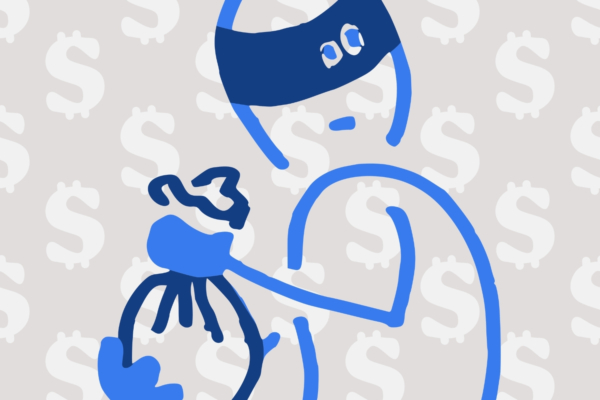
Fraudulent Transactions: Everything You Need to Know

If you’re a checking account holder, it’s not outside the realm of possibility that you’ve had a fraudulent charge on your debit card at one point or another. According to Security.org, nearly half of all American adults have had a fraudulent charge on their credit or debit cards, and more than one in three have experienced card fraud more than once.
With your money on the line, you’re not alone if you have lingering fears about the security of your bank account. There’s good news though: you can help keep your account safe by knowing how to identify suspicious activity and how to report it.
What is a fraudulent transaction?
A fraudulent transaction is one that has not been previously authorized by the cardholder. A fraudulent transaction occurs one of two ways:
- Your card or account information was stolen (even though you still have the physical card) and used to purchase items, withdraw cash, purchase something online, transfer cash via third party cash transfer system like Venmo, etc.
- Your physical debit or credit card was stolen and used to purchase items, withdraw cash, or used otherwise.
Fraudulent transactions are often confused with disputed transactions. Though they have some similarities, how they are handled is a bit different.
Fee-Free Banking is Here
Looking for a financial institution that doesn’t nickel and dime you? If you live or work in Texas, join Amplify!
Fraudulent vs. Disputed Transactions
A transaction is considered disputed if it was at one point authorized, but that authorization has since been revoked. This includes:
- You made a purchase but were charged the wrong amount
- You were billed for merchandise that you purchased but returned or never received
- You were mistakenly charged twice and haven’t received any credit back
Say you eat out at a local restaurant and leave a $5 tip on your card. Later, you check your bank statement and realize that the restaurant mistakenly charged a $50 tip. This would not be considered fraud, since you did at one point authorize the transaction. Instead, you would need to dispute the charge.
How you go about disputing a transaction will depend on your bank and can sometimes take up to four months to settle. This is why it’s usually advised that you attempt to resolve with the merchant before filing a claim. If you are unable to reach a resolution with the establishment that made the charge, visit your card issuer’s website and contact them directly.
When filing your claim, keep the following tips in mind:
- Be prepared to present evidence that supports your position including invoices, sales receipts, or other materials
- Always submit copies instead of originals
- If you send anything by mail, do so by certified mail and request a return receipt
The Federal Trade Commission provides helpful resources, including a sample letter for dispute resolution, on their website.
How do banks identify fraudulent transactions?
Today, most financial institutions have implemented some form of fraud detection for their members and customers. If you’ve ever received a fraud alert for your debit or credit card, you may have wondered how banks identify these transactions from your everyday spending habits.
The key: algorithms and artificial intelligence that detect unusual transactions or spending patterns.
For instance, if you made a purchase near your home in Austin, Texas, and soon after your card information was used to purchase something in a different country, the purchase would likely get flagged as suspicious. (This is why you should always notify your bank or credit union if you plan on using your card while traveling.)
Have you ever accidentally entered the wrong PIN or zip code at the gas pump? This small mistake might have caused your bank to lock your account. Incorrect verification information is another flag for banks.
Signs Your Account Has Fraudulent Transactions
While technology has certainly come a long way in helping banks identify suspicious activity, you should also do your part to monitor your account. Check your mobile banking apps frequently and be on the lookout for signs of fraud like:
- Purchases made from unfamiliar locations
- Charges that you don’t recognize, even if they are small amounts
- Phone calls or emails that request information about your card, such as the expiration date or security (CVV) number
Setting up notifications on your phone that alert you whenever a purchase is made is a great way to monitor your account.
Reporting Fraudulent Transactions
If you think that your card has been used fraudulently or your account information has been compromised, it’s important to report it immediately.
Under the Electronic Funds Transfer Act, you maintain zero liability for fraudulent transactions only if you report your debit card lost or stolen before an unauthorized transaction. If you report it within two days of your account being compromised your maximum liability is $50. If you report it within 60 days, you may be liable for up to $500. Beyond that, you may be on the hook for any and all fraudulent transactions made on your card or account.
Therefore, time is of the essence. The quicker you report suspicious activity, the more likely you’ll be able to get your money back. If you are an Amplify Credit Union and wish to file a dispute or fraud claim, you can do so at the following numbers:
- For personal and business checking accounts, savings accounts, and debit card claims and disputes, please contact Amplify at (512) 836-5901 or toll-free at (800) 237-5087.
- For consumer credit card claims and disputes, please contact Amplify at (800) 558-3424.
- For business credit card claims and disputes, please contact Amplify at (866) 552-8855.
If you believe your card has been lost or stolen, please notify Amplify’s team so your current card can be canceled and a new one issued.
Fighting Fraudulent Transactions on Peer-to-Peer Payment Apps
Peer-to-peer (P2P) payment apps like Venmo, Cash App, and PayPal have made it easy to send money to friends and family. But it has also opened a new door for fraudsters looking for their next victim. Unfortunately, these services provide few, if any, protections for users. If you get scammed or notice unauthorized transactions on your account, you may be out of luck.
The key to avoiding these scams is to use your account wisely and prevent them from happening in the first place. You can take these steps to secure your P2P apps:
- Never do business or send money to strangers through payment apps
- If you receive money from someone that you do not know, contact the app’s support team and do not attempt to return the money
- Be careful who you give your phone to and always have password protections on your devices
- Never provide anyone with your financial information over email or text, even if they claim to be from one of these services
- Never enter your login info outside of the app or official website
If you notice suspicious activity on your account or think that your account has been hacked, change your password and contact the support team of the company immediately. You should also notify your bank, who can freeze any cards or bank accounts associated with the P2P account.
Keeping Your Account Safe
The key to keeping your financial information and money safe is to be aware. Regularly check banking apps or peer-to-peer platforms you use. Always keep an eye on your balances and report any unauthorized or unusual activity as soon as you notice it.
Become an Amplify Member
Every Amplify account holder enjoys fee-free banking. That means no overdraft, maintenance, or other banking fees cutting into your pocket.


